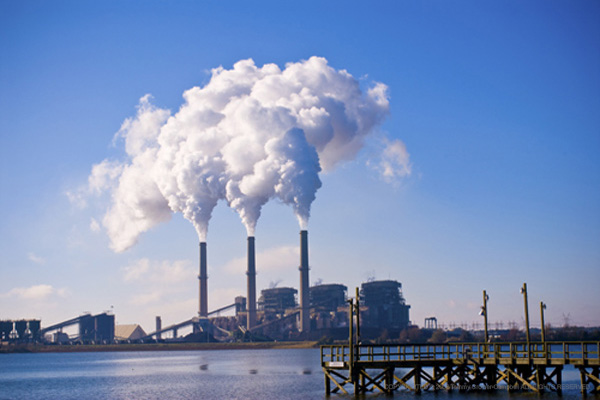
Source: Tammy Cromer-Campbell
Today, the Sierra Club filed a lawsuit against the U.S. Environmental Protection Agency (EPA) for failing to require Texas to crack down on excessive and unsafe air pollution in the communities around the coal-burning Martin Lake power plant in Rusk and Panola Counties in northeast Texas. The state’s own air pollution monitor shows that levels of harmful sulfur dioxide (SO2) pollution around Martin Lake violate EPA public health standards. The Martin Lake coal-fired power plant is the nation’s single largest source of sulfur dioxide pollution, and significantly impacts air quality throughout the region.
“Because of the mining and burning of lignite coal that has been done in the last 35 years in Rusk County for the Martin Lake coal-fired power plant, we’ve had impacts to our land, air and wildlife in the area including wild deer that have left their natural habitat and the overall air quality outside when we are able to be outdoors,” said Mandel Stoker, Rusk County historian for the National Association for the Advancement of Colored People (NAACP).
Sierra Club’s lawsuit is based on EPA’s failure to require Texas to submit a clean up plan for Martin Lake, in violation of the Clean Air Act. Meanwhile, Martin Lake’s 2019 SO2 emissions nearly doubled compared to 2016, the year EPA finalized the non-attainment area intended to reduce SO2 pollution. Sierra Club’s legal action will put EPA on a timeline to act and require a plan to clean up Martin Lake. Cleaning up this pollution will improve air quality and public health outcomes for communities nearest the plant and across the region.
“During this pandemic, getting outdoors and breathing fresh air is critical for Texans’ mental and physical health but Martin Lake State Park is so polluted from the coal plant that by breathing this dirty air, we would be making ourselves more vulnerable to the coronavirus and other ailments,” said Richard Letourneau, Fisherman and outdoorsman of Longview, Texas. “The EPA must require Texas to submit a clean up plan to protect our environment, clean air, and our outdoor recreational spaces.”
Sulfur dioxide pollution can harm people in multiple ways, as it will also interact with other pollution in the air to form dangerous particulate matter pollution. A public health analysis conducted in 2017 by Dr. George Thurston demonstrated that this pollution from Martin Lake, by itself, contributes to more than 100 premature deaths annually, thousands of asthma attacks, lost work, lost school days, and more than $1 billion in public health costs every year. Emerging research in the midst of the COVID19 pandemic confirms the deadly impact of particulate air pollution, linking chronic exposure to air pollution to higher death rates for those contracting COVID19.
“In my home, the air quality is the determining factor in whether my asthmatic children can play outside or are confined indoors. Pollution doesn't respect county lines and the harsh impacts of this pollution are felt by residents from East Texas to the DFW area,” said Misti O’Quinn, Organizing Representative for Sierra Club’s Beyond Coal Campaign. At a time when respiratory health is at the forefront of the news, EPA should be digging in on how to improve public health by cleaning up dangerous pollution from the biggest source of sulfur dioxide in the country and not ignoring its responsibilities by enforcing clean air protections to improve quality of life for countless Texans.
Today’s action comes after Sierra Club requested data last week about some of the most dangerous Texas polluters including massive coal plants, petrochemical facilities, and oil and gas operations that already negatively impact the health of communities across the state. Specifically, Sierra Club issued Freedom of Information Act and Texas Public Information Act requests to the EPA and the Texas Commission on Environmental Quality.